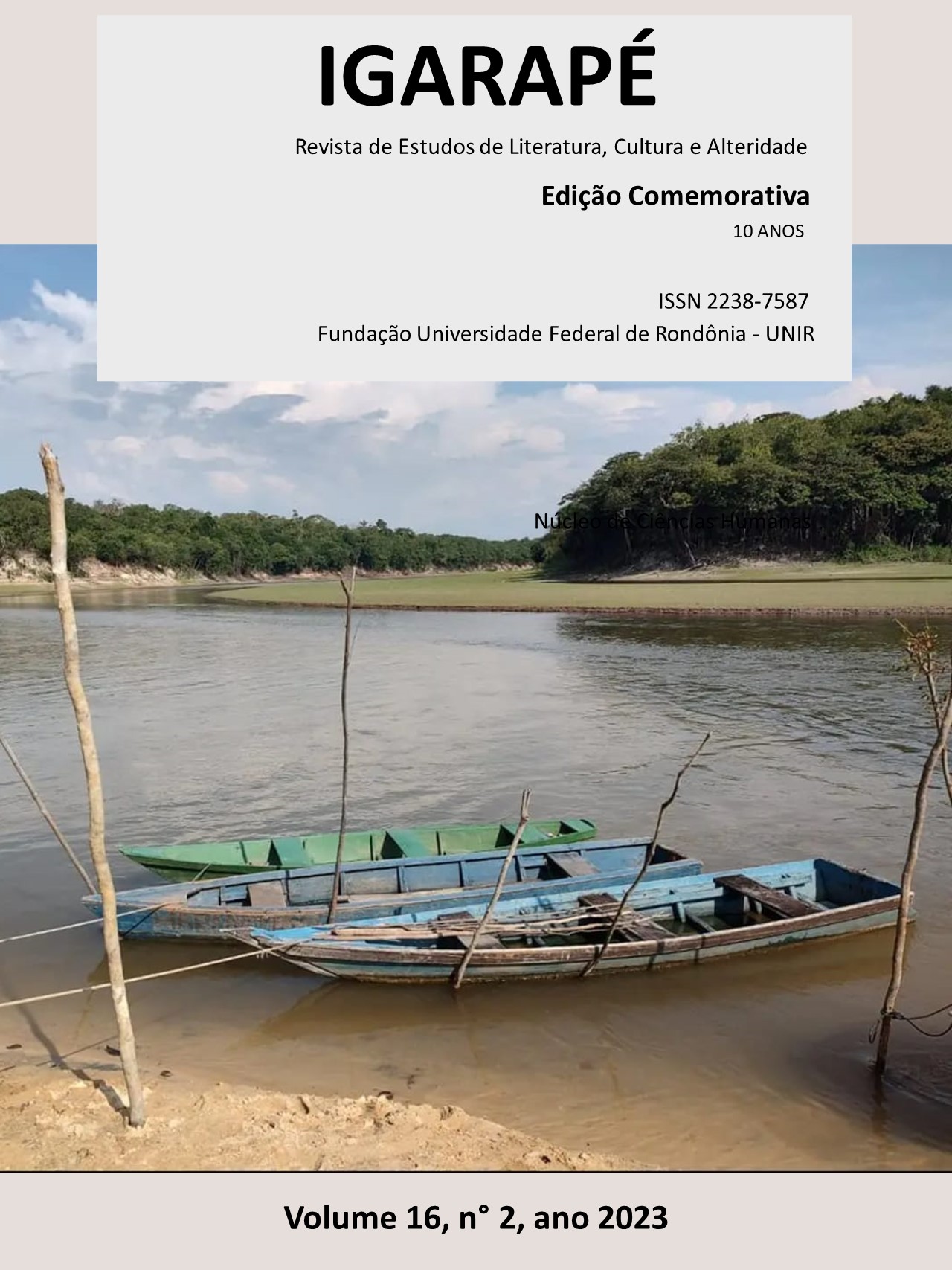The Great War and how to find the language to describe it:
voices form Literature and History
DOI:
https://doi.org/10.47209/2238-7587.v.16.n.2.7651Palavras-chave:
Grande Guerra, Progresso, História, Pontos-de-vista, Reflexões LiteraturaResumo
Neste artigo nos propomos a mostrar pontos de vista sobre a Primeira Guerra Mundial. São várias perspectivas para se justificar ou condenar uma Guerra, no caso a “Grande Guerra”. Ela foi, por exemplo justificada pelos políticos de todas as nações envolvidas como inevitável e além dos poderes de qualquer um para a impedi-la. No entanto, não existe um acordo unânime sobre as suas causas. Foram dadas várias explicações, que foram resumidas pelo historiador Niall Ferguson: (a) Geopolítica: Os estudiosos alemães argumentam que a Alemanha, devido à sua posição geográfica na Europa Central, tinha medo do cerco. Essa foi pelo menos a justificativa alemã. Mas qual seria a justificativa dos aliados? O que dizem pensadores e historiadores sobre o assunto? Discutimos também a influência da Guerra na linguagem literária. Entre vários autores citaremos T.S. Eliot, Ezra Pound, James Joyce, W. B. Yeats, Ford Madox Ford que revelam o efeito da guerra na linguagem.
Downloads
Referências
BARKER, Pat, The Eye in the Door. New York: Plume, 1993
BRADBURY, Malcolm, The Modern British Novel. Harmondsworth, Middlesex: Penguin, 1994
COOPERMAN, Stanley. World War I and the American Novel. (No Title), 1967.
ELLIS, John. Eye-deep in hell: Trench warfare in World War I. JHU Press, 1989.
FERGUSON, Niall. The Pity of War. London: Allen Lane. The Pity of War, 1998.
FUSSELL, Paul. The Great War and modern memory. Sterling Publishing Company, Inc., 2009.
GILES, Judy; MIDDLETON, Tim. Writing Englishness: An Introductory Sourcebook. Routledge, 2003.
HAMILTON, Nigel, The Brothers Mann: The Lives of Heinrich and Thomas Mann. New Haven: Yale University Press, 1979
HOBSBAWM, Eric. Identity politics and the left. new left review, p. 38-47, 1996.
HYNES, Samuel. A War Imagined. The Great War and English Culture. London: Bodley Head, 1991.
KEEGAN, John. A history of warfare. Random House, 1993
KIERNAN, Ben. Orphans of Genocide: The Cham Muslims of Kampuchea under Pol Pot. Bulletin of Concerned Asian Scholars, v. 20, n. 4, p. 2-33, 1988.
O'CONNELL, Robert C. The Wizard of German Weaponry. Military History Quarterly. Spring, 1989.
PAYNE, Stanley G. A history of fascism, 1914–1945. University of Wisconsin Pres, 1995
RAYMOND, Ernest, Tell England: A Study in a Generation. 1922. Qtd. in Giles, Judy, and Tim Middleton (eds.), Writing Englishness 1900-1950: An Introductory Sourcebook on National Identity. London: Routledge, 1995.
SASSOON, Siegfried. The Complete Memoirs of George Sherston. London: Faber & Faber, 1937.
SONTAG. Regarding the Pain of Others, [s.I.] [s.n] 2005
TATE, Trudi, “The First World War: British Writing,” in: McLoughlin, Kate (ed.). The Cambridge Companion to War Writing. Cambridge: Cambridge University Press, 2009
TAYLOR, Alan John Percivale. The First World War: An Illustrated History. Penguin UK, 1974.
TUCHMAN, Barbara W. The Guns of August: The Outbreak of World War I; Barbara W. Tuchman's Great War Series. Random House Trade Paperbacks, 1994.
YOUNG, Brigadier Peter (ed.), Marshall Cavendish’s Illustrated Encyclopedia of World War I. Freeport, Long Island: Marshall Cavendish Corp, 1984.
WINN, James Anderson. The Poetry of War. New York: Cambridge University Press, 2008
WARNER, Sam Bass. The urban wilderness: A history of the American city. Univ of California Press, 1995.
WAUGH, Evelyn. Harmondsworth, Middlesex: Pengun, 1964.
WEST, Philip. Early modern war writing and the British Civil Wars in: Kate McLoughlin (ed.), The Cambridge Companion to War Writing. Cambridge: Cambridge University Press, 2009.
Arquivos adicionais
Publicado
Como Citar
Edição
Seção
Licença

Este trabalho está licenciado sob uma licença Creative Commons Attribution 4.0 International License.

